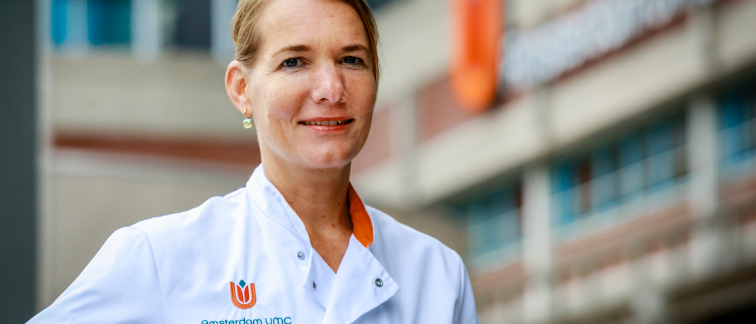Many people think that dementia is a disease related to increasing age, but around 10% of people with dementia in the Netherlands get symptoms before the age of 65 (an estimated 29,000 people in total). The influence on their lives is enormous. The loss of work, major changes in personal life, and often the long search for a 'good' diagnosis turns everything upside down. For many years, neurologist and professor Yolande Pijnenburg has been working with a large (inter)national team on research that focuses on recognizing dementia at a young age.
Different faces of dementia
In addition to Alzheimer's disease, young-onset dementia also includes frontotemporal dementia and several more uncommon diseases, such as corticobasal degeneration or semantic dementia. The symptoms are usually different from the well-known forgetfulness and are less extensive than in dementia in old age. They often concern specific functions such as behavior, speech, and sight. Some of the patients can no longer empathize with others without being aware of it. This is often referred to as a psychiatric problem. Pijnenburg: “Half of the patients are initially diagnosed with autism, burnout, or manic depression. As a result of the abnormal symptoms, young-onset dementia is often diagnosed after an average of four years. This brings a lot of sadness, insecurity, and misunderstanding.”
Unravel the cause
In young onset dementia, we often see that the disease starts very locally in the brain and is accompanied by specific symptoms; this can be a key to finding the mechanism. For this, Pijnenburg wants to set up a large national cohort at Alzheimer Center Amsterdam. Pijnenburg: “People with young-onset dementia can help us by sharing information about their complaints, symptoms, and the consequences of the disease for them and their loved ones. And in addition, by donating biological material with which we can conduct research into the cause of the disease. Moreover, we look at which hereditary factors play a role and we are developing biomarkers to diagnose the condition.”
Importance of brain research
Better diagnoses of dementia can also be made by studying the brain after the patient is deceased. Yet for this research structural financing does not exist. In her inaugural lecture, Pijnenburg emphasizes that high-quality care also means the reimbursement of postmortem research by insurance companies. Pijnenburg: “This way the family gets to know what exactly was going on, why certain symptoms were present and how extensive the disease was. Additionally, with this examination you can check if the diagnosis was correct, which forms a quality control for the doctor.”
Episodes podcast ‘HersenHelden’
Yolande Pijnenburg has been a guest in the podcast HersenHelden of Alzheimer Center Amsterdam twice, with the subject of dementia at a young age. These can be listened to via Apple Podcast and Spotify.
Episode 3 - Yolande Pijnenburg: ‘Dementia at a young age’ (in Dutch)
Episode 10 - Frank and Herman Futselaar and Yolande Pijnenburg: ‘The many faces of dementia at a young age’ (in Dutch)

